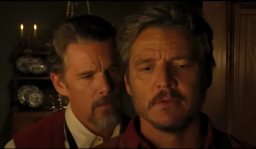It’s time to put “values into action” in the documentary field, argued professor Patricia Aufderheide at Ji.hlava Film Festival.
Addressing ethical issues that doc filmmakers identify in their work, Aufderheide – who joined the conference online – offered concrete solutions, referencing DAWG’s [Documentary Accountability Working Group] framework “From Reflection to Release.”
“Integrate anti-oppression practices in your work. Be transparent in your relationships. Acknowledge your positionality. Respect the dignity and agency of the people in your film. Prioritize the needs, wellbeing and experience of the people associated with the film, treat potential audience members with dignity, care and concern.”
Aufderheide also discussed the possibility of “defraying necessary expenses,” with the participants offered location fees, if filming takes place in their homes, paid for post-release work or simply offered compensation for a day’s work lost.
“If your participant is a young Black kid who wants to play basketball, like in [Steve James’] ‘Hoop Dreams,’ you might think about defraying their costs,” she said. In the end, they received almost $200,000 in royalties from the film.
Still, such a solution won’t make ethical sense every single time. “If you are making a film about Elon Musk, Elon Musk does not need to be compensated.”
As pointed out by Aufderheide, practices associated with journalism don’t have to apply to documentary films. Sometimes, showing the film to the participants in advance or even offering producer credits for shaping the narrative can be the right choice.
“[Not doing it] might work when you are investigating a corrupt public official. It doesn’t work as well when you work with a traumatized individual, or a whistleblower, or someone who has experienced sexual assault.”
Not re-traumatizing the participants, as well as getting informed consent from everyone involved, is crucial – something the teams behind “Jihad Rehab” [now “The UnRedacted”] and “Sabaya” have reportedly struggled with, said Aufderheide.
But she also mentioned positive examples, starting with “Always in Season,” about a mother’s quest for justice after her son’s lynching. Its director, Jacqueline Olive, tried to preserve her protagonist’s safety by filming in another town, not her home.
In “Overnighters,” helmer Jesse Moss was ready not to include damning information after stumbling upon his participant’s secret. “He had a heart-to-heart discussion with the pastor on whether he wanted that material out.”
As noted by Aufderheide, while working filmmakers kept admitting they were encountering ethical problems all the time, people continued to avoid the topic.
Still, the conversation continued, with multiple documentaries generating controversies over the years. From Davis Guggenheim’s “Waiting for ‘Superman,’” accused of favoring charter schools, to “The Act of Killing” or “Roadrunner,” about the late Anthony Bourdain, where director Morgan Neville used artificial intelligence to mimic his voice.
“These are all questions that people have, but they have not yet resulted in change,” she observed.
However, in the last three years in the U.S., significant changes in the industry, including the rise of the streamers, as well as racial reckoning, put the topic front and center.
“All the broadcasters are in a very vulnerable position. The people who they always believed they had in the palm of their hand, documentary filmmakers, suddenly got other options. Suddenly, there are other places to go. They are looking to make more friends and say: ‘You should work with us, not with Netflix,’” she said.
New organizations, such as DAWG, Undocumented Filmmakers Collective or FWD-DOC: Documentary Filmmakers with Disabilities are also keeping up the momentum, while “non-extractive filmmaking” should be seen as priority.
“It’s not enough to say: ‘I am a good person.’ You have to acknowledge that oppression is built into our society. Be transparent, be clear about what you are doing. Go the extra mile to respect the dignity and the agency of the people in your film. They are not your ‘subjects.’”
While such solutions are becoming more common – especially in films about, with or for members of underrepresented, minoritized or oppressed groups – people who apply them still think they are “sneaking around,” she said. Adding that the arrival of “From Reflection to Release” was met with a “big sigh of relief.”
“It all starts with reflection. As a filmmaker, you have to ask yourself: Why am I interested in making this film? What are the relationships I need to have in order to make it? Am I the person who should be making it?”
“We create a series of questions, but we don’t provide answers.”
Read More About:
Source: Read Full Article


